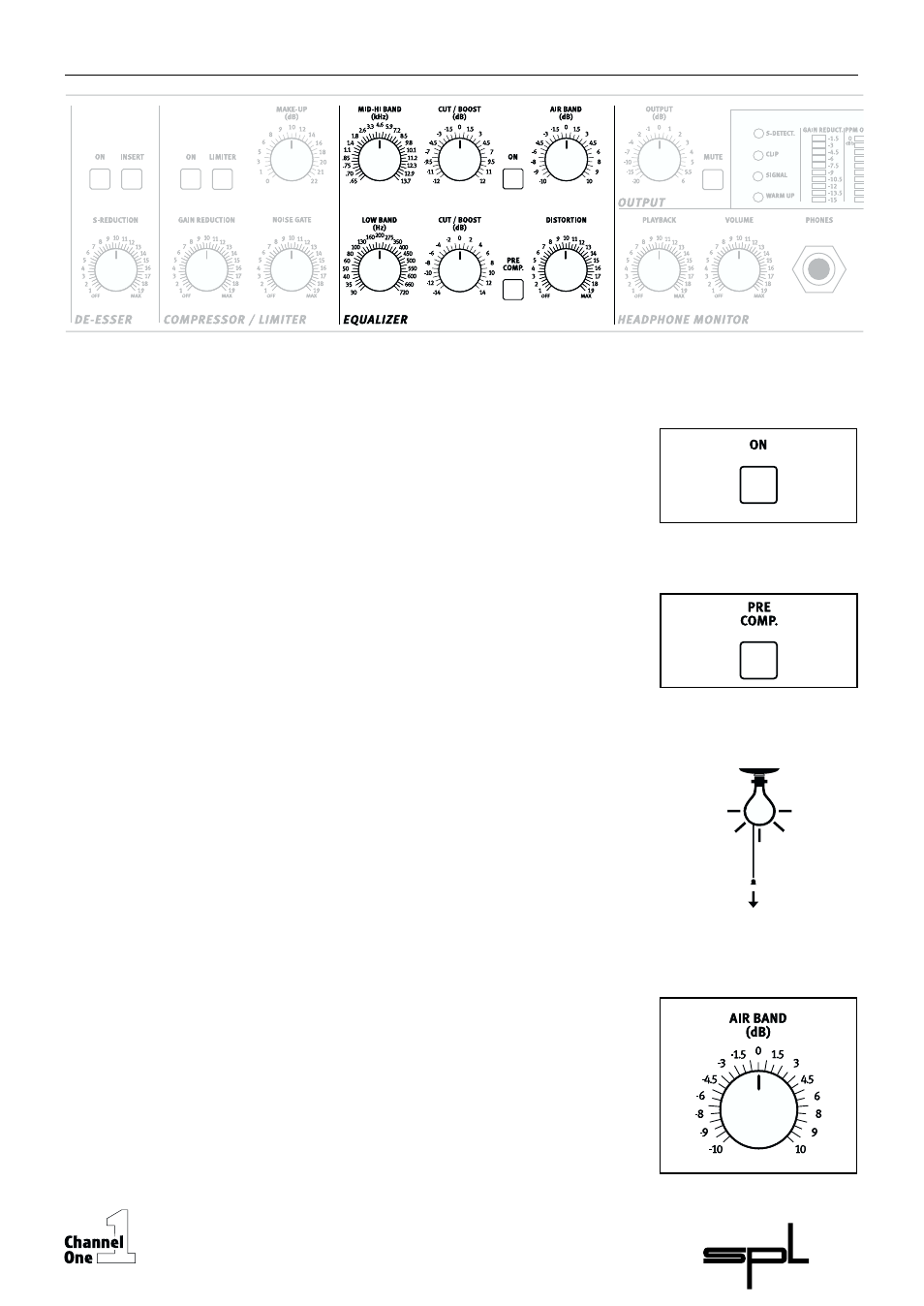Operation – SPL Channel One Channel Strip User Manual
Page 15

15
Operation
Equalizer
On
The On button inserts the Equalizer module into the signal path. Under
normal circumstances the input signal comes from the compressor. With the
Pre-comp button the Equalizer can be switched in before the Compressor/
Limiter so that the input signal is received from the De-Esser or Insert.
Pre Comp.
The Pre Comp. button reverses the sequence of Compressor/Limiter and
Equalizer: When the button is pressed the Equalizer operates in front of the
Compressor/Limiter; when not pressed the succession remains unchanged.
This function permits very flexible operation with the Channel One when it
is necessary to resolve recurring problems or to create special sounds.
The following example describes when the Equalizer (EQ) is to be switched
in front of the Compressor/Limiter.
When over-accentuation of instruments or voices is registered within
certain frequency ranges these ranges should first be reduced with the EQ.
The signal can subsequently be compressed more easily. If not done in this
sequence the compressor would react very strongly to these ranges; subse-
quent equalization would mean that the compression would be clearly
audible (the problem frequencies would then be too soft). A further sensible
application of the Pre Comp. function is the use of the compressor module
as a limiter to maintain a stable output level. If the EQ was to be used again
after limiting it could not be guaranteed that the output level would not
alter.
Air Band
The high frequency filter in the equalizer module is described as the ”Air
Band” and serves the processing of the frequency range of 2 and 20 kHz. A
coil-capacitor-filter with so called bell characteristics and a center frequency
of 17.5 kHz comes into operation here. At this frequency the maximum
possible accentuation is +10 dB, the maximum possible damping is -10 dB.
The characteristics of the Air Band filter are shown in diagram 2 on page 24.
